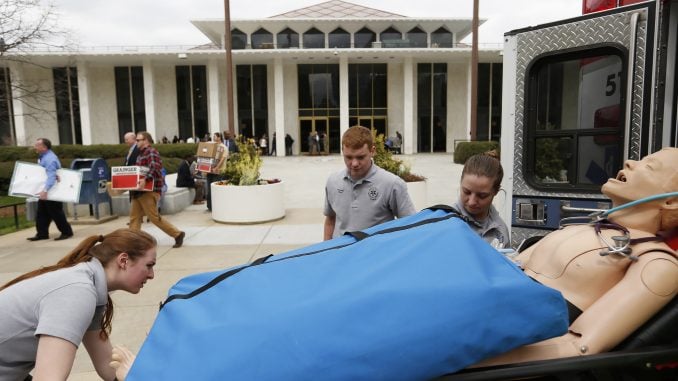
RALEIGH From 3-D printing to film production and health care, N.C.’s Community Colleges are churning out the next generation of the state’s high-tech workforce. The best and the brightest were on display at the N.C. General Assembly this week as leaders from the 58 schools showed off some of the unique programs available to students. This day every year is intended to remind lawmakers of the value of the state’s investment in the community college system.”We are doing such incredible things its a good day when we can show it off,” said Dr. James Williamson, president of the community college system, “The technology that we use is so advanced but it costs, its not cheap, we are providing the workforce, so this day is all about branding and education on the diversity of our system.””Unless you use a community college most don’t realize all the contributions that the schools make to their counties,” said Rep. Linda Johnson (R-Kannapolis). “They are only 30 minutes away from everyone in the state, and as employers look for more and more skilled workers, just six months of training at a community college can change someone’s life.”The state legislature adopted the Community College Act in 1950 to fund a post-high school training program as the state moved toward an industrial economy after World War II. Today, the system brings together traditional trade schools, licensure and high-tech training. Recently though community colleges have been working more closely with universities to coordinate matriculation for students looking to start their education at a community college, earn an associate’s degree and then transfer to a state university to earn a four-year degree.This week Johnson was also on hand to welcome the presidents of the community colleges to the General Assembly. In 2014, Johnson along with then-Majority Leader Edgar Starnes sponsored a law directing the UNC Board of Governors to institute an agreement between the universities and community colleges, allowing students to transfer credits more easily into four-year institutions.”The cooperation between the colleges and universities is going well,” said Johnson. “It is such a help to the workforce and it saves our families thousands of dollars.”Nearly a million North Carolinans take classes at a community college each year. The state budgets just more than a billion dollars annually for their operation, less than 10 percent of the total education budget. As N.C.’s economy is one of the fastest growing in the nation, the community college program is widely seen as the most cost-effective and efficient key to filling any skills gaps that emerge.But of course trades are still a huge career field for up-and-coming craftsmen and women. Welders, electricians and linemen are all in demand as the previous generation looks toward retirement.”Half of the country’s electrical linemen are fixin’ to retire. There is a high demand for this trade,” said Brandon Shook, electric line construction technology instructor at Nash County Community College.



